Spain Dealing With ‘Totally Unprecedented’ 30-Month Drought
It’s not uncommon for Spain to experience extended periods of drought, but 30 months is a particularly long stint, even by the country’s standards. The lack of rain in the northeast has forced the region to begin rationing water, with farmers, in particular, already predicting a dreadful growing season.
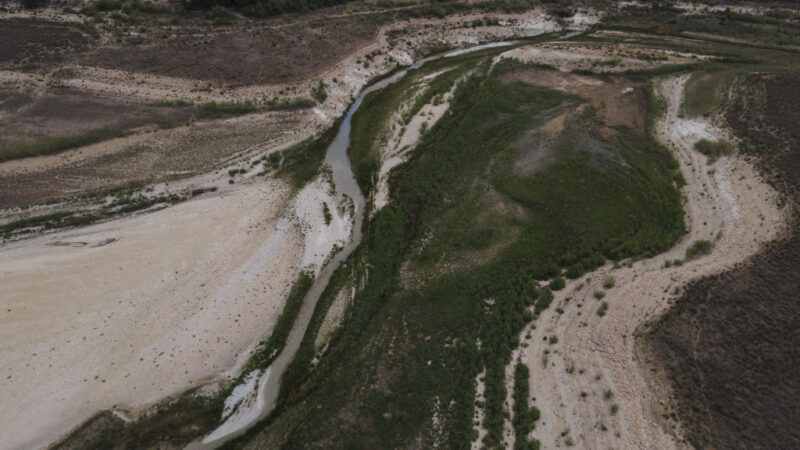
Spain as a whole has been in a long-term drought since the end of 2022, with the country having experienced three years of low rainfall and high temperatures. It only received 36 percent of its average monthly rainfall in March 2023, and while there were hopes April would bring rain, it wound up being the driest on record.
The lack of precipitation has hit the country’s northeast particularly hard, with reservoirs around Catalonia dropping to just 55 percent capacity. The Sau reservoir, considered the region’s primary water source, is in even worse condition, having dropped to seven-to-eight percent of its overall capacity.
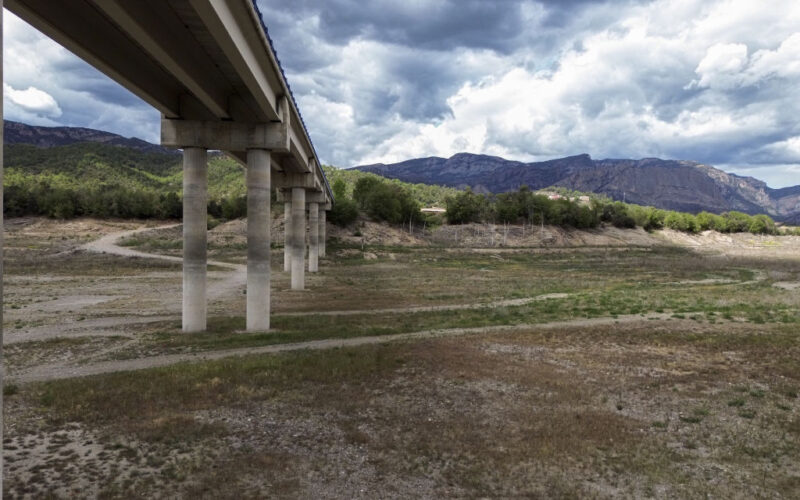
What appears to be a never-ending drought has led to water rationing, with Spaniards being told to take quick showers, hold off on filling pools and be mindful when washing dishes. Officials have begun recycling effluent water from sewage treatment plants for street cleaning, as well as making use of seawater desalination.
Plants dedicated to removing salt from seawater were constructed following the drought of 2008. The period saw so little rain that water had to be shipped in from France.
“This is the worst period that we have had for the last 100 years,” Samuel Reyes, the director of the Catalan Water Agency, tells CNN. Things have only been made worse by the record-breaking heat, which has compounded the already-dry conditions.
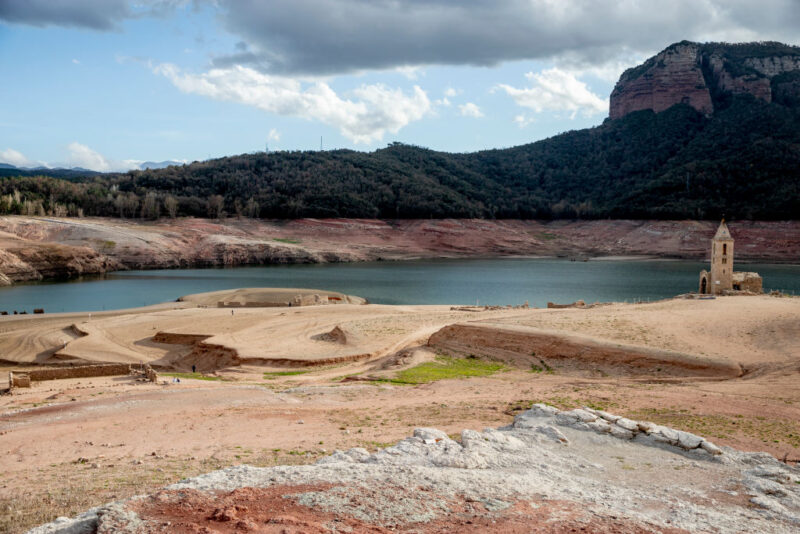
Farmers are arguably the ones most concerned about the drought, which has turned their fields into swaths of cracked, parched dirt. Speaking with CNN, Martí Costal, the head of water at Young Farmers and Ranchers of Catalonia (JARC) called the circumstances unprecedented, explaining that 60 percent of Spain’s countryside has been impacted by the lack of rain, leading to the loss of 3.5 million hectares of crops.
The Federation of Agricultural Cooperatives of Catalonia (FCAC) has issued a warning regarding the likely increase in produce prices as a result of failed harvests, particularly those related to fruit, rice, olives and cereals. It’s believed only crops along the coast or those watered with desalinated water will survive.
On top of this, livestock have lost the pastures upon which they feed, meaning farmers are having to spend money on other food sources. Bees also aren’t able to produce honey, with the Coordinator of Farmers’ and Ranchers’ Organizations (COAG) saying beekeepers face a third straight season without a harvest, due to the lack of precipitation.
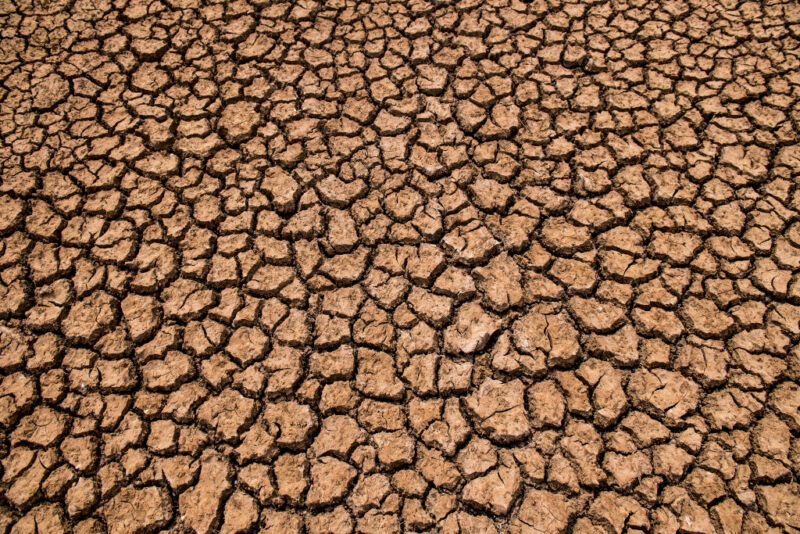
To alleviate some of the financial strain these farmers face, the Spanish government has implemented a series of measures that total a whopping €2.2 billion. Of that, €1.4 billion will go toward building new desalination plants and doubling the use of treated wastewater. The country’s government has also requested emergency funding from the European Union.
Spain’s Ministry of Agriculture, Fisheries and Food has promised €646 million in direct aid, as well as insurance, loans and tax breaks for farmers, beekeepers and ranchers. It’s reported that many will receive a 25 percent income tax reduction.
However, these measures will likely not help the export situation that’ll inevitably arise. Spain is “Europe’s back garden,” with the country sending a large portion of its agricultural produce to other areas of the EU. Farmers won’t be able to fulfill these orders if they don’t have water to grow their crops.
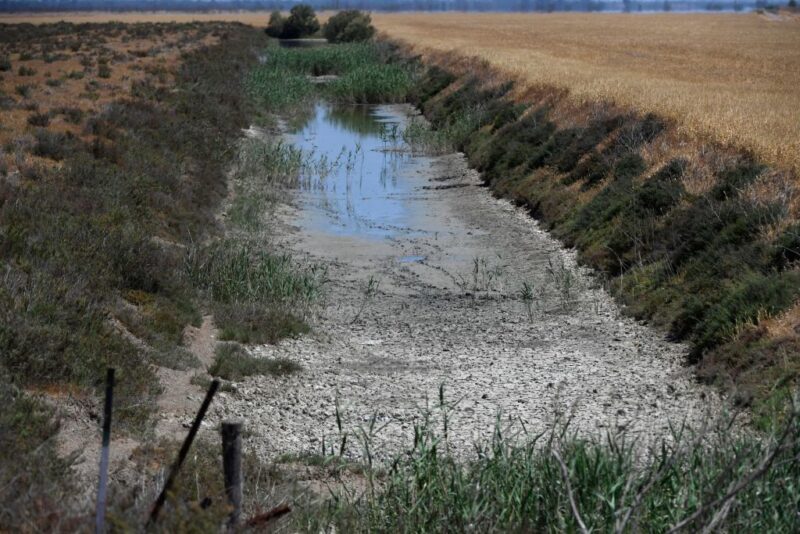
According to the United Nations (UN), approximately 75 percent of Spain is undergoing the process of desertification. While the lack of rain and high temperatures are largely to blame for this, Julio Barea of Greenpeace Spain tells France24 that the country’s farmers have also played a role.
“This drought shows us the limits of the Spanish agricultural model, which is based on the false impression that we have an abundance of water,” he explains. The country’s farming sector accounts for up to 80 percent of the country’s fresh water consumption.
More from us: Want to Witness the Northern Lights In Person? Mark Your Calendar for 2025
Agrometeorologist Serge Zaka echoes the gravity of the situation, telling CNN, “These argo-climatic conditions are leading to an agricultural disaster.” He adds in an interview with France24 that Spain is in a “mega-drought situation,” saying, “The [current] state of the soil and water reserves generally corresponds to what we see in August. This is totally unprecedented.”





